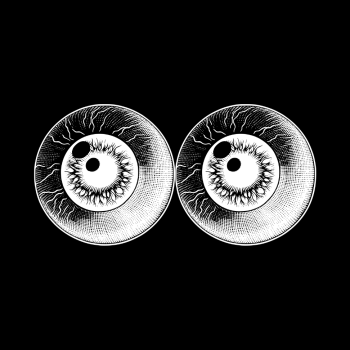
Nearing four years ago, I set out to write a theology of queerness. Referring to God as “The Queer,” I set out on a journey. Pushed forward and endorsed by a motley crew of queer scholars and thinkers, the finished product (The Courage to Be Queer) speaks of a world set to rights or a world made right. As the new year approaches, I pray for the end of this world and the dawning of the world to come. Below, is my interpretation of The Revelation of John (an excerpt from the larger work). In this new year, may we all be able to stand with God and loudly proclaim, “It’s the end of the world as we know it.
“The Revelation of John”
Either John is the greatest fictional writer of all time or he had an encounter with the Queer. I am convinced there are not many other ways to meet this strange book. The Revelation of John is the queerest book in all of scripture. Even though there might be moments of proclamation contained herein that are not from the Queer, we should expect to meet God in queer spaces of the text.
The words are difficult to understand. Perhaps, there is a need to try and think in the way that John did. We have to locate the text in our context. We are queers. We must bring a queer hermeneutic in order to understand such a queer book. We have the ability if we are willing to embrace the freedom. The God who is queer beyond all imagination is with us.
“The time is near” (Revelation 1:3). The prophetic words of this book are reality and are becoming reality. The battle between the Queer and the keeper of normativity is afoot. We fight against the spiritual forces of normativity that seek to take the very core of who we are. Who will win? The Queer is the “‘…Alpha and Omega’…who is and who was and who is to come…” (1:8). There is no losing for the Queer. All normativity will be transformed to queerness. The Queer is the beginning, the end and everything in between and after. Queerness is eternal and will bring all of us to the light. The boundaries and borders of closets will be destroyed. From the island of “Patmos” (1:9), John gives us a place to begin our own vision of how.
“I turned to see whose voice it was that spoke to me…I saw one like the Son of Man” (1:12/13). John stepped out of the closet and beheld the queer. Sometimes rejecting normativity is as simple as turning. The boldly queer encounter is like a stunning drag show filled with colossal special effects and you are the only watching. John describes the figure possessing: a robe, a gold sash, white hair, flaming eyes, bronze feet, a voice like soothing waters, seven stars in the right hand, a two-edged sword protruding from the mouth and a face that shown like the sun (1:14-16). The queen called the Son of Man was ready to role. The whole scene scared the shit out of John. Falling down “as though dead,” John felt a hand on his shoulder and heard, “Do not be afraid…” (Revelation 1:17). There are many who simply cannot face the queerness that is the freedom of a true queen. Seven letters go out with seven queer lessons from seven queer beings that demand our attention.
“…[Y]ou have abandoned the love you had at first.” (2:4). Closets can be prisons that make us think that love can be confined to such a small space. We pose in relationship after relationship and pretend that everything is ok. Nothing is ok when you have left your first love. The lasting effect of the initial fall of humanity is that we have all left our first love. We all run from closet to closet seeking temporary false loves. We must, “Remember then from what wehave fallen…” (2:5). The way back is through the realization that we have fallen and the memories of where we have fallen from. We had to get in the closet in the first place. The entrance and exit knobs are the same knob.
Wealth is a normative construction that sometimes fools us into thinking that we are rich. “I know your affliction and your poverty, even though you are rich.” (2:9). We all know the plastic images of people smiling as hard as they possibly can in hopes that other people might believe they are happy. We are an afflicted people that is desperate to fool other people into believing that we are not. The closet cannot mask affliction. We will remain impoverished until we reach within, open the door and embrace the Queer.
“Repent then. If not, I will come to you soon and make war against them with the sword of my mouth.” (2:16). It is always interesting to find a “them: when you expect to find a “you.” The “them” are those that the queer being of Pergamum knows are teaching the people falsely and helping people stay comfortable in their closets. We don’t just repent and come out of the closet to save our self. We also repent and come out of the closet to save others. Through our queer being, we afflict those who suppress their queerness. The Queer within is a light to all who seek light and an offense to those who comfort those in closets. The Queer promises to bring a sword from the mouth. The words of the Queer will indict all who seek to remain in normative spaces.
The words that are written to the queer being of Thyatira remind us that temptations of normativity abound. We regularly hear false teachings that comfort the closeted. The temptations of normativities abound. We are tempted to use the bodies of others for our own gain. All of these temptations take us away form our first love of the Queer, the self and each other. In the face of temptation, we must fight back and overcome. “To the one who conquers I will also give the morning star.” (Revelation 2:28). When we receive the star of overcoming the closet, we can shine a light that can complete the queering of the whole cosmos.
“I know your works; you have a name of being alive, but you are dead.” (3:1). People spend excessive amounts of time being busy. The glorification of busy is a chief sin of our modern age. We are like hamsters on a wheel that just keep on running round and round. What is the point of constant physical exertion? You can run in circles in a closeted hell of normativity all you want, but the door is still shut and you still are a fraud. You can convince people that you are alive, but if you are really dead, what difference does it make? There are those who say that people are dying in closets. I disagree. Those who refuse to leave the closet are already dead.
The Queer is the God of the open door. “Look, I have set before you an open door, which no one is able to shut.” (Revelation 3:8). So often the lies of normativity convince us that there is no other way to live except in a closet. We refuse to look to the Queer. We refuse to look to the light. We refuse to turn. No matter how long we refuse. God is standing behind us with an open door that no one can ever shut. All we have to do is turn and walk through. So often we deny the queer name of God. We refuse to acknowledge and engage the Queer within. We keep saying no and the Queer keeps reminding us that the door is always open. The Queer is the God that waits until you turn to the light. “I will write on you the name of my God…” (3:12). May the name “Queer” be written on us all.
Returning to the closet is the second great temptation of life. There are many who want to live their lives oscillating between freedom and normativity. The Queer is not mocked. “I know your works; you are neither cold nor hot. I wish that you were either cold or hot.” (3:15). The Queer desperately seeks for us to leave the closet of normativity and be free. You can’t be both slave and free at the same time. God desires to free the whole person. If you come out to some and not others or pretend to be something you are not, God says, “I am about to spit you out of my mouth.” (3:16). When you’re trying to be a normative queer, God spits you back into the closet. Don’t nobody want to sit in a dark closet cold and wet soaking in the saliva of the almighty Queer. Through queerification, God spits us back into the closet until we are purified of our normative identities and ways. The oscillation between the closet and freedom fools no one.
No special effects or exaggeration here. John looks up into the heavens and there “…a door stood open!” (Revelation 4:1). Does he have the courage to go? John’s courage doesn’t matter. The voice called out, “Come up here, and I will show you what must take place after this.” (4:1). The invitation to the door is an invitation to be a part of the beautiful queering that comes next, the return to Eden or whatever we were in the beginning. The Spirit of the Queer started moving and John moved too. “At once I was in the Spirit, and there in heaven stood a throne, with one seated on the throne!” (4:1). Queer things happen when the Spirit gets to moving. John is transported away from all normativity and into the queerest heavens to see the Queer on the throne of all queerness. John had to step up to step into something queer. Upon arrival to the highest heavens, words begin to fail and queerness takes over. The diversity and majesty of the diversity of creatures is no distraction from the beautiful joyous shout, which can be heard thusly, “Holy, holy, holy, the Lord QueerAlmighty, who was and is and is to come” (4:8). The Queer has been, is and will always be queer and we get to embrace the totality of it all if we are willing to go to, with and into the Queer.
John sees strange scrolls, animals, seals, tribes and forehead stamps all building up to one moment. “After this I looked, and there was a great multitude that no one could count, from every nation, from all tribes and peoples and languages, standing before the throne and before the Lamb, robed in white, with palm branches in their hands.” (7:9). The Lamb of God which is the sacrificial love of the Queer is the only queer who has the strength to bring all the queers of the earth together. In one body, the people shout out in queer unison without losing their queer differences. The beauty of the body of God is realized in bringing people together through queerness and uniting them in the Queer. The Queer “…at the center of the throne will be their shepherd, and he will guide them to springs of the water of life, and God will wipe away every tear from their eyes.” (Revelation 7:17). The tears have been wiped away and queerness is all that is left above. However, the battle against the beast of normativity rages below the fullness of queerness.
The birthing woman brought forth life in the midst of agony. God protected the child and the woman from the dragon. Growing angrier, the dragon sought to destroy the heavens through the uniformity of jealousy and hate. Thrown down to earth, the great normative Satan continued to chase the woman. Satan has been at “…war on the rest of her children” ever since (12:17).
Make no mistake. There is a war raging in the hearts of humanity. God is fighting for our queerness and Satan is battling for us to be just like everyone else. The battle continues until the end. On that day when all things are complete, the dead are judged “according to their works” (20:12). God seeks to purify those who refuse to let go of their normativity and throws them into “the lake of fire” (20:14) to purify their soul and bring them forth in all queerness. The fire is not to punish. The fire is to purify the soul with the flame of love. God’s love is a mighty flame that will eventually purify all of creation. The purification of the partial must come before the arrival of the perfect, the Queer.
John had a vision of the beauty that is coming, “Then I saw a new heaven and a new earth; for the first heaven and the first earth had passed away…” (21:1). Queerness consistently creates newness. When we are willing to walk with the Queer, we grow to experience a newness of life that works with and within us to create a new world. The voice of the Queer declares, “See, the home of God is among mortals…Death will be no more…for the first things have passed away.” (Revelation 21:3/4). God is with us! We do not have to look anywhere but within to experience the queerness of God. The embrace of the Queer is the embrace of that which is beyond death. There is no more death because all has been made queer. The first partial things have all passed away. We read these lines with joyful expectation because we know that love will bring out the queer in us and connect us with the queer in the other and connects queers with the queerness of a planet to arrive at a place queerer than all of our combined wildest dreams where we will dwell with the God who created all things queer to begin with. “See, I am making all things new” (21:5). The Queer invites us to see and not just to look. We must open our eyes to the queerness flowing within and all around us. The seen becomes the unseen and the unseen the seen in a restoration of true sight.
“I am the Alpha and Omega, the beginning and the end.” (21:6). God was there in all queerness at the beginning and will be there in all queerness at the end. Our story has a beginning and an end in the queerness. Do you remember? “To the thirsty I will give water as a gift from the spring of the water of life.” (21:6). We spend our lives missing the thirst-quenching presence of the totality all queerness. The Queer promises to quench our thirst if we will turn the knob of the closet, walk away from normative distractions and embrace the way, the truth and the life that is the Queer. We are the vessels that need to be filled. Will we stay in the closet of our thirst or will we drink?
“Then the angel showed me the river of the water of life…” (Revelation 22:1). The essence of our physical being is water and in that place our essence flows through the middle of the city. The essence of our total being is queerness. In that place, the life essence of the Queer flows through the city. Queerness flows through the city. The queer essence of both God and us flows together in one uniting stream of the Queer. “…[T]here will be no more night…for the Lord God will be their light…” (22:5). Queerness will be all that we have ever needed and all that we will ever desire. For in knowing the fullness of the Queer, all of humanity will return to the true queer wholeness that we enjoyed in the beginning. Jesus says, “Surely I am coming soon.” The Queers within all stand their queerest and expectantlydeclare in a stifling world of normativity, “Amen. Come, Lord Jesus!” (22:20).













